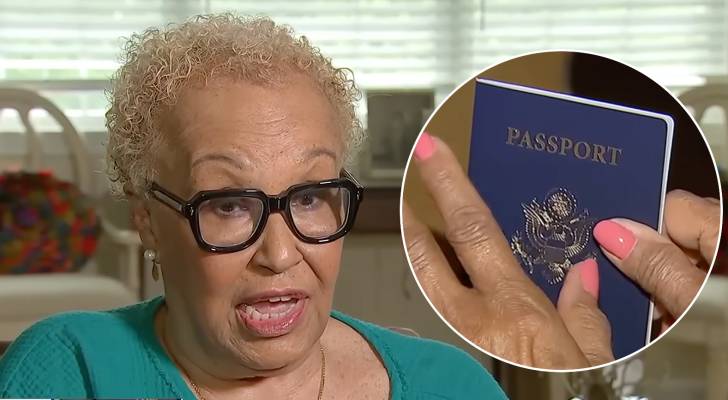This Montana duo needed help running their 10-acre farm so they turned to TikTok — and ended up with 4,000 applications. Here’s how they turned a shared dream into a sustainable reality


When you can’t find farmhands the old-fashioned way, it might be time to think outside the fence posts. That’s exactly what the founders of Yellowstone Farmstead did. The agricultural venture, nestled at the Montana side of Yellowstone National Park, began as Shugabeet Farms — a solo project launched by sixth-generation Maine farmer Sage LeBlanc. In […]
This woman thought she was sending a teen $2 for a bottle of water on a hot day — until she realized he’d taken $1,100. And she’s not the only one who’s been scammed by Atlanta’s ‘water boys’


As the summer heat kicks in, nothing’s more refreshing than grabbing a cold bottle of water while you’re stuck in traffic. But for some Atlanta drivers, that quick sip has turned into a costly scam draining wallets faster than you can say “Cash App." So-called water boys — teens who hustle bottled water to passing […]
Big Brother star’s real estate firm being sued in 11 states over claims of misleading agreements that cost homeowners thousands — why this type of contract is banned in more than 22 states


After turning heads on Big Brother, Amanda Zachman, the self-proclaimed villain of Season 15, stepped out of the spotlight and into real estate, founding brokerage firm MV Realty. But the controversy she stirred up on the small screen has followed her into her professional career. Don’t miss I’m 49 years old and have nothing saved […]
This Texas couple adored for their Bollywood-style songs is now accused of running a $4M scam on up to 100 victims — 1 investigator calls them ‘the most prolific’ fraudsters he’s ever seen


The behind-the-scenes reality wasn’t nearly as glamorous as the show they put on. Sidhartha “Sammy” Mukherjee and his wife Sunita built their reputation as Bollywood-style performers. Beloved in the community, the couple were more than just entertainers — they were stars. Don’t miss I’m 49 years old and have nothing saved for retirement — what […]
This finance personality freed herself from $300K in debt — by replacing her shame with strategy. Here’s how she helps others find purpose in their finances through ‘curiosity’
You might recognize her as @TheBudgetnista on TikTok, sharing money wisdom with warmth and wit. But Tiffany Aliche’s impact goes far beyond viral videos. Before the books, the interviews and the online following, she was on the ground teaching women, particularly women of color, how to navigate financial systems not built with them in mind. […]
‘I made a promise’: This Massachusetts grandmother paid $499 online to renew her passport in just 4 days — but was left waiting for weeks, nearly missing her grandson’s college graduation


Some family milestones are non-negotiable, like watching your grandson graduate from university. For Janice Brathwaite, a proud grandmother from Salem, that meant traveling from Boston to Lexington to see him walk the stage at the University of Kentucky. Don’t miss I’m 49 years old and have nothing saved for retirement — what should I do? […]
Nebraska woman says the chilling discovery of 4 tracking devices hidden in her car led police to her abusive ex — and helped uncover a dangerous loophole in the state’s stalking laws
Getting stalked is terrifying, but realizing how it’s happening can be just as disturbing. That’s what one Nebraska woman discovered while searching for her lost AirPods between the seat and armrest of her car. Instead of earbuds, she pulled out a tracking device she didn’t recognize, definitely didn’t install. Don’t miss I’m 49 years old […]
Kansas City woman wins $7.1M in landmark illegal towing case — after her truck was held for 699 days. Why one of her lawyers says it sends a strong message to the entire towing industry


Predatory towing has long been a thorn in the side of American drivers — whether their car breaks down at home or they’re forced to move it after a crash. But a Kansas City woman just won a $7.1 million judgment against a local towing company, sending a message to the U.S. towing industry: illegal […]
This NYC woman has turned sitting in a parked car into a savvy side hustle — but can her quirky solution for an urban headache help shift your own plans into gear?


Side hustles used to mean babysitting your neighbour’s kid or walking dogs for extra cash. Then came rideshares, delivery apps and reselling vintage Levi’s on Depop. But in New York, the hustle has officially entered its parked car era. Owning a car in New York City already comes with its own brand of chaos: gridlocked […]
‘Please take me to small-claims court’: This St. Louis man’s credit score plunged from 815 to 630 after his landlord sent a $4,500 rent dispute to collections — here’s how he fought back


When St. Louis resident David Murray moved out of his apartment two months early, he thought he had done everything right — giving proper notice and settling his lease. Then came the shock: a $4,500 bill for two months’ rent plus penalties. Murray was sure it had to be a mistake, but when his pristine […]
